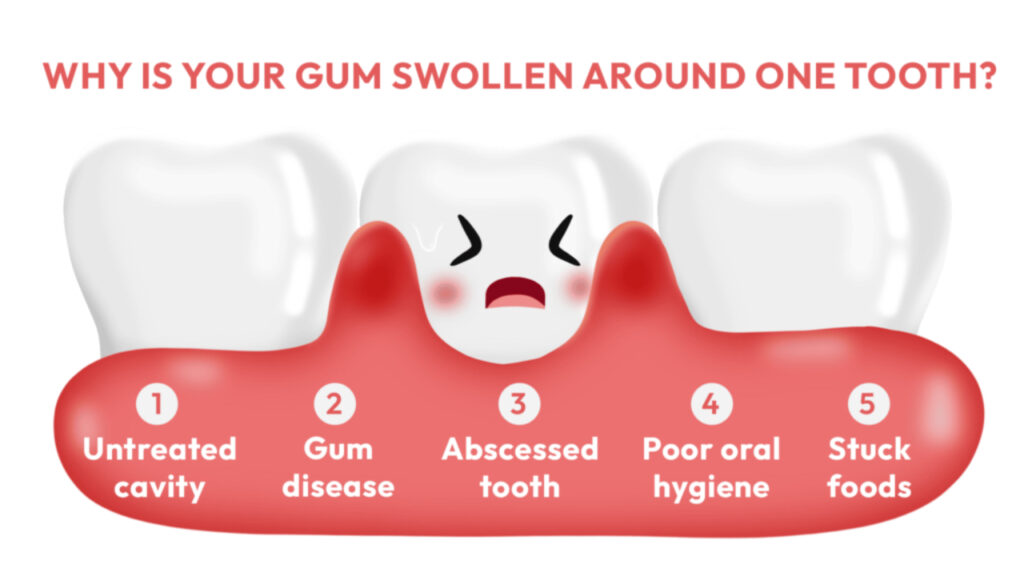
Pregnancy Gingivitis: What You Need to Know
What is pregnancy gingivitis?
Gingivitis is an inflammation of the gums caused by plaque buildup. During pregnancy, hormonal changes can make you more susceptible to this condition. Pregnancy gingivitis often leads to red, swollen, and tender gums.

How common is pregnancy gingivitis?
According to the , pregnancy gingivitis affects 60% to 75% of pregnant individuals.
Symptoms and Causes
What causes pregnancy gingivitis?
The hormonal surge during pregnancy, particularly increased levels of estrogen and progesterone, heightens gum sensitivity and inflammation. Factors include:
- Decreased ability of your body to respond to plaque bacteria.
- Increased blood flow to gum tissues.
- Pregnancy hormones can make some women be at risk of gum problems including:
- gingivitis (inflammation of the gum) – this is likely to occur during the second trimester. Symptoms include swelling of the gums and bleeding, mostly during brushing and when flossing between teeth
- periodontal disease – infection of the structures supporting the tooth (gums, ligament and bone). It’s caused by untreated gingivitis and can lead to tooth loss
- pregnancy epulis or pyogenic granuloma – a red, round growth that appears on the gum, which can bleed easily.
What are the symptoms of pregnancy gingivitis?
Common symptoms include:
- Bleeding gums during brushing or flossing.
- Red, shiny gum surfaces.
- Swelling and tenderness.
- Persistent bad breath.
Symptoms may peak during the second trimester and continue through the pregnancy.
Can pregnancy gingivitis affect the health of my baby?
Mild gingivitis is unlikely to harm the fetus. However, untreated gingivitis can progress to periodontitis, which has been linked to preterm delivery and low birth weight.
Diagnosis and Treatment
How is pregnancy gingivitis diagnosed?
Your dentist or Ob/Gyn will assess your symptoms and examine your gums and teeth to confirm the diagnosis. Severe cases may require dental X-rays, which are safe during pregnancy with proper shielding.
How is pregnancy gingivitis treated?
Treatment includes professional dental cleaning and improved oral hygiene habits, such as:
- Brushing twice daily.
- Flossing daily.
- Rinsing with warm saltwater (1 teaspoon of salt in 1 cup of water).
In severe cases, your dentist may recommend:
- Prescription mouthwash.
- Oral antibiotics.
Prevention
How can I prevent pregnancy gingivitis?
While hormonal changes are inevitable, you can reduce your risk by:
- Practicing good oral hygiene.
- Brush your teeth thoroughly twice a day for 2 minutes using a fluoride toothpaste. Ask your dentist to demonstrate an effective brushing technique to remove plaque.
- Floss daily to clean your teeth and prevent plaque buildup.
- Use a small-headed toothbrush with soft bristles that feels comfortable to hold for better cleaning.
- Limit sugary drinks (like fizzy beverages or sweet tea) and sugary foods, keeping them to meal times only.
- Eating a balanced diet and limiting sugary foods.
- When snacking, choose healthy options such as fresh vegetables, fruits, or plain yogurt. Avoid sugary or acidic snacks.
- Opt for alcohol-free mouthwashes to protect your oral health.
- Quit smoking, as it worsens gum disease and negatively impacts oral hygiene.
- Visiting your dentist during pregnancy.
- Quitting smoking or using tobacco products.
- Vitamin C
- Vitamin C helps battle the bacteria that build up in and around your gums. It can be derived from several fruits or taken in supplement form.
- Vitamin A is essential in keeping tooth calcium healthy, but it can be taken in too large quantities, so adhere to the upper limits.
- Gargling with sea salt can also help reduce gingivitis inflammation.
Outlook
Will pregnancy gingivitis go away after pregnancy?
Yes, gum inflammation usually subsides after childbirth. However, maintaining good oral hygiene is essential for long-term dental health.
What is the prognosis for pregnancy gingivitis?
With proper care and dental visits, can be managed or prevented. Left untreated, it may progress to periodontitis, which can lead to tooth loss and complications like preterm birth.
Conclusion
Whether you’re improving your smile by addressing proactive dental care is key to a healthy smile and overall well-being. Always consult with your dentist for personalised advice and treatments.
